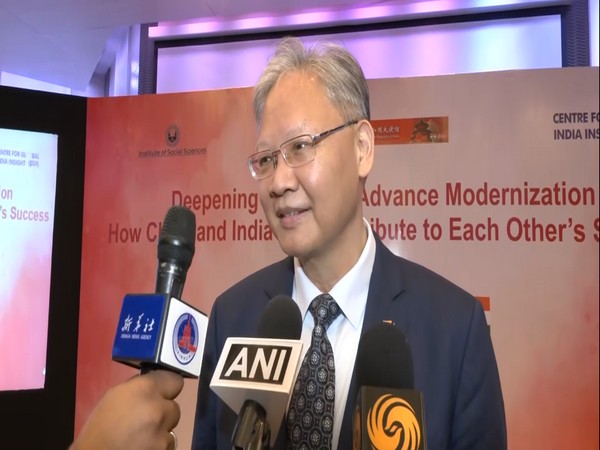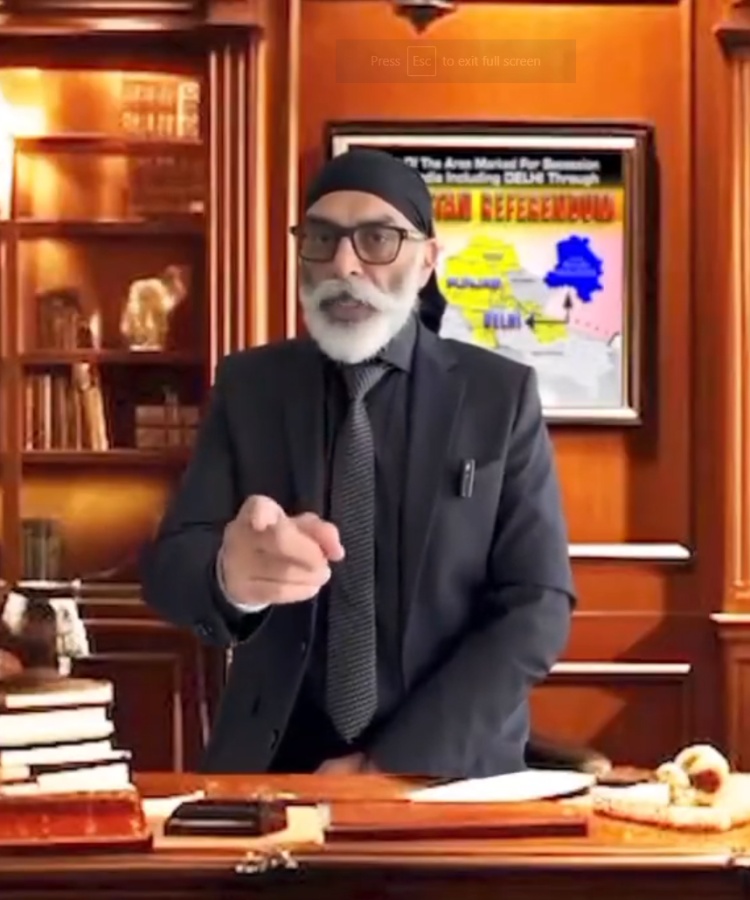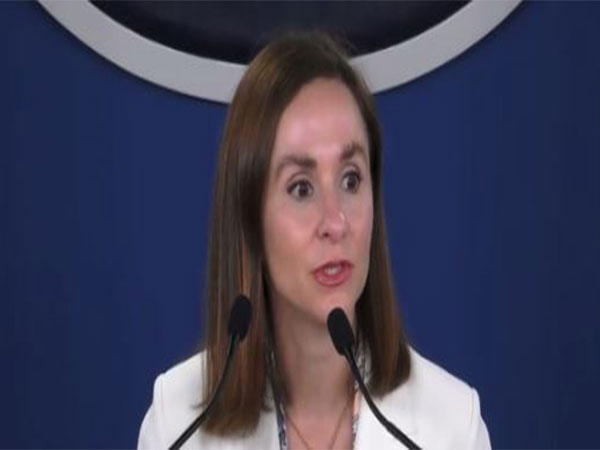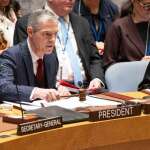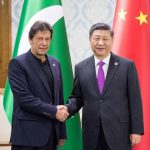Xu Feihong said that at the conference marking the 70th anniversary of the Five Principles of Peaceful Coexistence..reports Asian Lite News
Noting that China and India are the two biggest developing countries in the world and both have the responsibility of improving the livelihood of people, China’s Ambassador to India Xu Feihong said on Thursday that President Xi Jinping and PM Modi have reached many important consensus which means that the two countries are not competitors but co-operators and are development partners, not threats.
“China and India are the two biggest and developing countries in the world. Both of us have the important responsibilities of developing the economy and improving the livelihood of people. China is determined to build itself into a great modern socialist country by the middle of this century and India has a vision of Vikasit Bharat by 2047… For a long time, China and India had a very close cooperation – in 1950s, China and India put forth the five principles of peaceful coexistence, which have become basic norms of international relations and also fundamental principles of international law, which have made historical contributions for greater cause of human progress,” Xu Feihong told reporters.
“In the new era, President Xi Jinping and PM Modi have reached many important consensus – that means China and India are not competitors but cooperators. We are developmental partners, not threats. This consensus provides guidelines for our bilateral relations… We have enough wisdom and capabilities for the right path and to get along with each other,” he added.
Earlier, speaking at an event here, the Chinese Ambassador said that India is implementing initiatives such as “Atmanirbhar Bharat (Self-Reliant India)” and “Make in India” and is committed to becoming a global manufacturing hub.
“China is advancing Chinese modernization on all fronts and promoting high-standard opening up, which will provide new cooperation opportunities to all countries including India. We are willing to strengthen exchanges of modernization experience with India, jointly make the cake of cooperation bigger, and better benefit the two countries and two peoples. The economic and trade structures of China and India are highly complementary. We welcome more Indian commodities to enter the Chinese market, and more Indian enterprises to invest in China. It is hoped that the Indian side could provide a sound business environment for the Chinese enterprises in India. The foundation of China-India people-to-people friendship is profound,” he said.
The Chinese envoy said that since 1990s, India has actively promoted economic and social reforms.
“Under the leadership of Prime Minister Modi, the Indian government put forward the policy of ‘Reform, Perform and Transform’, and India’s economy maintains rapid development and people’s living standards improve continuously. I would congratulate on the achievements India has made through reforms. Only China and India can understand how many efforts should be made to promote reform in a country with a population of 1.4 billion. We are willing to enhance experience-sharing on reforms with the Indian side, synergize our development strategies, learn from each other’s strengths and make progress together,” he said.
Xu Feihong said that at the conference marking the 70th anniversary of the Five Principles of Peaceful Coexistence, President Xi Jinping reiterated that China’s resolve to stay on the path of peaceful development will not change.
“The leaders of China and India reached important consensuses such as ‘China and India are partners rather than rivals, and are not threats to each other but opportunities for each other’s development’. They not only point out the direction for the development of bilateral relations but also provide important guidelines for the two countries to promote modernization,” he said.
The Chinese envoy said that at present, China-India relations are at a crucial stage of improvement and development.
“Chinese Foreign Minister Wang Yi met with Indian External Affairs Minister Dr S Jaishankar twice in the past two months and met with Indian National Security Advisor Mr Ajit Doval a few days ago. They had in-depth communication and reached an important consensus on the improvement of bilateral relations,” he said.
India and China held the 31st meeting of the Working Mechanism for Consultation & Coordination on India-China Border Affairs (WMCC) on August 29 in Beijing.
The two sides had a frank, constructive and forward-looking exchange of views on the situation along the Line of Actual Control (LAC) to narrow down the differences and find early resolution of the outstanding issues and they agreed for intensified contact through diplomatic and military channels.
The two sides decided to jointly uphold peace and tranquillity on the ground in border areas in accordance with relevant bilateral agreements, protocols and understandings reached between the two Governments.
It was reiterated that restoration of peace and tranquility, and respect for LAC are the essential basis for restoration of normalcy in bilateral relations.
During an interaction in Geneva recently, External Affairs Minister S Jaishankar had said that 75 per cent of disengagement problems with Beijing had been sorted out and the two nations “still have some things to do.”
Jaishankar also underlined how India and China never had an easy relationship in the past.
“We did not have an easy relationship in the past. What happened in 2020 was in violation of multiple agreements, the Chinese moved a large number of troops to the Line of Actual Control. We, in response, moved our troops up.. Some progress on border talks with China. 75 per cent of disengagement problems are sorted out. We still have some things to do,” Jaishankar said during his conversation with Ambassador Jean-David Levitte at the Geneva Centre for Security Policy. (ANI)
ALSO READ: US court summons Doval, ex-RAW chief, others in Pannun’s suit


